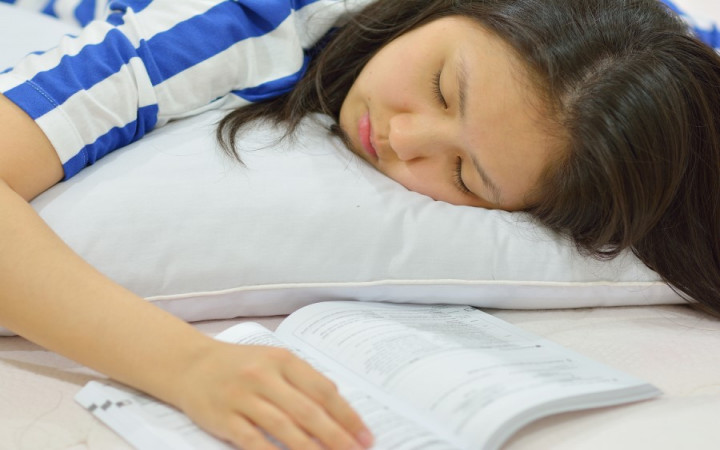Today’s Wonder of the Day was inspired by sam from NC. sam Wonders, “why does reading make us sleepy?” Thanks for WONDERing with us, sam!
Has this ever happened to you? You bring home an exciting new book from the library. But you have dinner to eat and homework to do before you can read. You don’t procrastinate and do your homework first thing.
Before you can open your book, though, chores call. So you mow the grass or do the dishes and clean your room. Then you set out your clothes for the next day and take a bath to wash away the dirt from the day.
After brushing your teeth, you’re ready to curl up with your book. You open it and start reading, thrilled about the adventure to come. The next thing you know, you wake up and it’s morning. You fell asleep while reading!
Drifting off after reading a few pages is something that many, if not most, of us can relate to. So what is it about reading that can make us conk out?
Not everyone gets tired while reading and, of those who do, not everyone wants to doze for the same reason. Experts think there are many reasons people might get worn out while reading.
The act of reading causes your eyes to follow the words across the page. It also takes brain power—you interpret the letters your eyes see and convert them into words, sentences, and paragraphs. As your brain works hard and your eye muscles tire, it’s natural they would need rest, causing your eyes to close as sleep takes over.
Reading isn’t bad for your eyes. We can only keep our eyes open for so long each day before we need to let them rest. If reading is easier when you wear glasses, be sure to wear them to make sure your eyes aren’t strained unnecessarily.
When you read, you usually do so in a cozy place, such as your bed or a favorite chair. When most of your body gets into a resting state and you’re in a comfortable position, the other muscles often follow and a nap can easily happen.
If you wait until right before bedtime to read, it’s likely that your mind and body are tired and nearly ready for sleep. If that’s the case, it doesn’t take much of any action, whether it’s reading or even watching TV, to lull you the rest of the way to dreamland.
Of course, if you’re not all that tired when you go to bed, you might read for a while without getting sleepy . . . unless, of course, the book you’re reading doesn’t interest you. If what you’re reading bores you or just doesn’t catch your imagination, your mind is likely to wander, and it often wanders right off to sleep.
If you want to read longer without falling asleep, there are some techniques you can use to maximize your reading pleasure. First, find a place to read that’s cozy, but not too cozy.
Rather than lying down on your back, sit up in a chair. Use extra lighting to reduce eyestrain. Also, make sure the temperature isn’t too hot. Reading in an environment that’s too warm can make you sleepy in a hurry.
If you think you will have trouble staying awake and you really need to finish that book before bed, try waking yourself up before you read. Do some light exercise or take a cool shower. Make sure the lights are bright enough. If you’re more alert when you start, you’re more likely to make it to the end of that book!
Standards: CCRA.R.1, CCRA.R.3, CCRA.R.10, CCRA.L.3, CCRA.L.4, CCRA.L.5, CCRA.L.6, CCRA.SL.1, CCRA.SL.3, CCRA.SL. 5, CCRA.W.6




